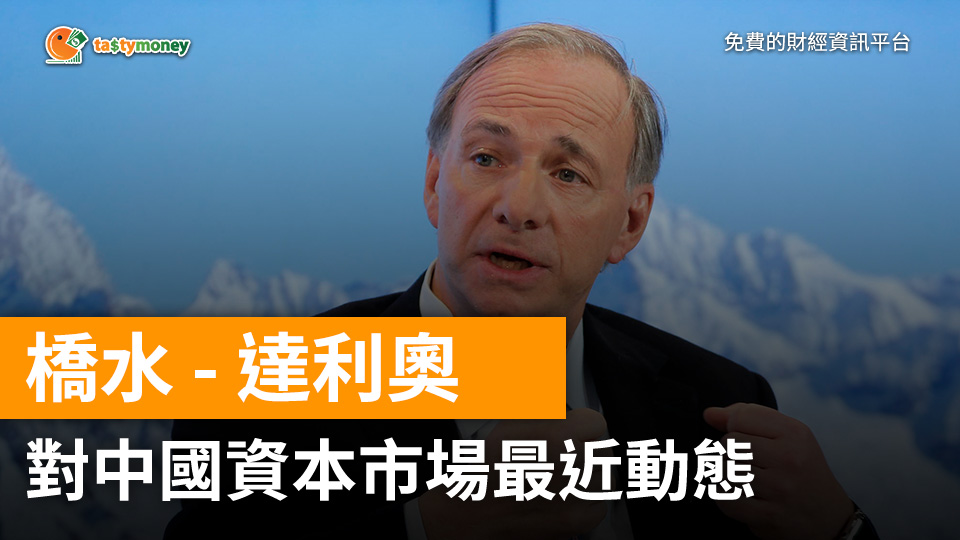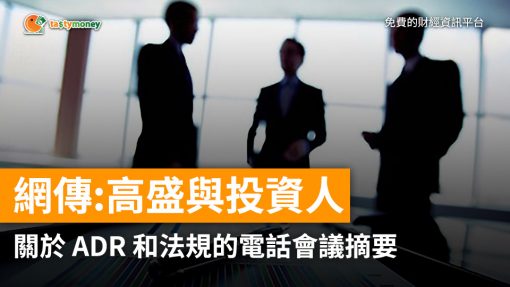原文:
達里奧先生在美國時間7月31日於LINKEDIN 發表了一篇對中國最新政策舉措的最新解讀,小編即刻轉載同大家分享一下賺錢之神的看法:
中文翻譯:
中國最近的政策舉措包括了:1)對滴滴的上市和數據使用控制;2)中國的教育公司需要轉變為非盈利企業。這讓人們對中國的資本主義和資本市場產生了很多懷疑,因此我想幫助大家澄清到底發生了什麼。

我知道最近的政策和行動讓那些不瞭解情況的人感到困惑。自從我36年前開始訪問中國以來,我發現大多數與政策制定者沒有直接接觸、沒有詳細瞭解政策變化模式的西方觀察家往往不相信中國共產黨利用資本市場促進發展的做法是真實的。他們把最近兩次這樣的舉動解釋為領導人表現出了真正的反資本主義傾向,盡管過去40年來的趨勢顯然是發展有資本市場的市場經濟,企業家和資本家變得富有。結果,他們錯過了中國的快速發展,而且可能將來還會繼續錯過。
在目前這種情況下,政策制定者向滴滴發出信號,表示繼續上市可能不是最好的選擇。他們希望處理數據隱私問題,這是可以理解的。就教育輔導公司而言,他們希望減少教育不平等現象,減輕那些迫切希望自己的孩子獲得這些服務但無法通過廣泛提供這些服務而負擔得起的人的經濟負擔。他們認為,即使股東們不喜歡,這些事情對國家來說還是更好的。
我記得有許多類似的誤解。例如,我記得中國散戶投資者泡沫破裂如何導致政府購買股票,然後有一段時間,政府試圖控制住資本市場。我還記得,2015-2016年,中國人民銀行擴大了人民幣匯率區間,導致人民幣匯率暴跌,這導致許多投資者將這些事態發展視為政策制定者放棄發展資本市場的證據。一些持懷疑態度的投資者將這些舉措視為不適當的反自由市場干預,盡管同樣的舉措在許多資本主義市場發生過多次。
美國和其他發達市場的財政和貨幣政策干預讓中國政府在其市場的干預行動相形見絀。通過這些舉動,中國決策者成功地管理了可能出現的後果並實現了他們的目標。他們的行動方向從未改變。它一直支持資本市場的快速穩定發展、創業精神以及對外國投資者的投資開放。因此,我鼓勵大家關註趨勢,不要誤解和過度關註波動。
要瞭解發生了什麼,你需要瞭解中國是一個國家資本主義制度,這意味著國家經營資本主義是為了大多數人的利益,決策者不會讓資本市場和富有資本家的敏感性阻礙他們做他們認為對中國人民最有益的事情。相反,資本市場中的人和資本家必須瞭解他們在金融體系中的從屬地位,否則他們將承受自己錯誤的後果。例如,他們不需要把擁有財富誤認為擁有決定事情發展的權力。
你還需要瞭解,在這個快速發展的資本市場環境中,中國監管機構正在制定適當的監管措施,因此,當監管措施變化迅速且不明確時,這會導致此類混亂,可能會被誤解為反資本主義的舉措。
此外,你需要瞭解全球地緣政治環境的變化會導致一些變化。你可以從美國政府的政策轉變中看到這一點,比如a)改變中國公司在美國上市的政策,b)威脅禁止美國養老基金在中國投資。
假設將來會發生這樣的事情,請不要將這些波動誤解為趨勢的變化,也不要期望中國的國營資本主義與西方資本主義一模一樣。
話雖如此,但我確實認為,中國決策者沒有更清楚地公開表達其行動背後的理由。
至於投資,在我看來,美國和中國的體系和市場既有機會也有風險,而且很可能相互競爭,實現多元化。因此,它們都應被視為個人投資組合的重要組成部分。我建議你們不要將這些舉動誤解為過去幾十年來存在的趨勢的逆轉,讓這些舉動嚇跑你們。
Understanding China’s Recent Moves in Its Capital Markets
Recent Chinese policy moves related to 1) DiDi’s listing and controls on its data usage and 2) China’s education companies being converted into non-profits have created a lot of doubt about capitalism and capital markets in China, so I’d like to help clarify what’s going on there.

I understand that it’s confusing to people who are not close to what’s happening. Since I started going to China 36 years ago, I have found that most Western observers who do not have direct contact with policy makers’ and don’t follow in detail the patterns of the changes have tended to not believe that the Chinese Communist Party’s usage of capital markets to foster development is real. They interpret moves like these two recent ones as the Communist Party leaders showing their true anti-capitalist stripes even though the trend over the last 40 years has clearly been so strongly toward developing a market economy with capital markets, with entrepreneurs and capitalists becoming rich. As a result, they’ve missed out on what’s going on in China and probably will continue to miss out. In this case the policy makers signaled to DiDi that it might not be best to go ahead with the listing and they understandably want to deal with the data privacy issue. In the case of the educational tutoring companies they want to reduce the educational inequality and the financial burden on those who are desperate to have their children have these services but can’t afford them by making them broadly available. They believe that these things are better for the country even if the shareholders don’t like it.
I remember a number of such analogous misinterpretations. For example, I remember how the Chinese retail investor bubble bursting led to government stock buying and then the government trying to manipulate the market for a while. Also I remember the Chinese currency plunge in 2015-16 resulting from the PBoC widening the band and how that led to many investors pointing to these developments as evidence that policy makers were turning away from developing capital markets. Some skeptical investors looked at these moves as inappropriate anti-free market interventions even though these same moves happened many times in many capitalist markets and even though the fiscal and monetary policy interventions in the U.S. and other developed markets dwarf the Chinese government interventions in its markets. Through it all Chinese policy makers successfully managed the fallout and pursued their goals; i.e., the direction of their actions never changed. It has been in support of a fast and steady development of capital markets, entrepreneurship, and openness to investment to foreign investors. So I encourage you to look at the trends and not misunderstand and over-focus on the wiggles.
To understand what’s going on you need to understand that China is a state capitalist system which means that the state runs capitalism to serve the interests of most people and that policy makers won’t let the sensitivities of those in the capital markets and rich capitalists stand in the way of doing what they believe is best for the most people of the country. Rather, those in the capital markets and capitalists have to understand their subordinate places in the system or they will suffer the consequences of their mistakes. For example, they need to not mistake their having riches for having power for determining how things will go.
You also need to understand that in this rapidly developing capital markets environment Chinese regulators are figuring out appropriate regulations so, when they are changing fast and aren’t clear, that causes these sorts of confusions, which can be misconstrued to be anti-capitalist moves.
Also, you need to understand that the global geopolitical environment changing leads to some changes. You can see that reflected in the U.S. governments’ policy shifts such as a) changing its policies about Chinese companies’ listings in the United States and b) threats to prohibit American pension funds from investing in China.
Assume such things will happen in the future and invest accordingly. But don’t misinterpret these wiggles as changes in trends, and don’t expect this Chinese state-run capitalism to be exactly like Western capitalism.
Having said that, I do think that it is unfortunate that Chinese policy makers don’t publicly communicate the reasoning behind their moves more clearly.
As for investing, as I see it the American and Chinese systems and markets both have opportunities and risks and are likely to compete with each other and diversify each other. Hence they both should be considered as important parts of one’s portfolio. I urge you to not misinterpret these sorts of moves as reversals of the trends that have existed for the last several decades and let that scare you away.















